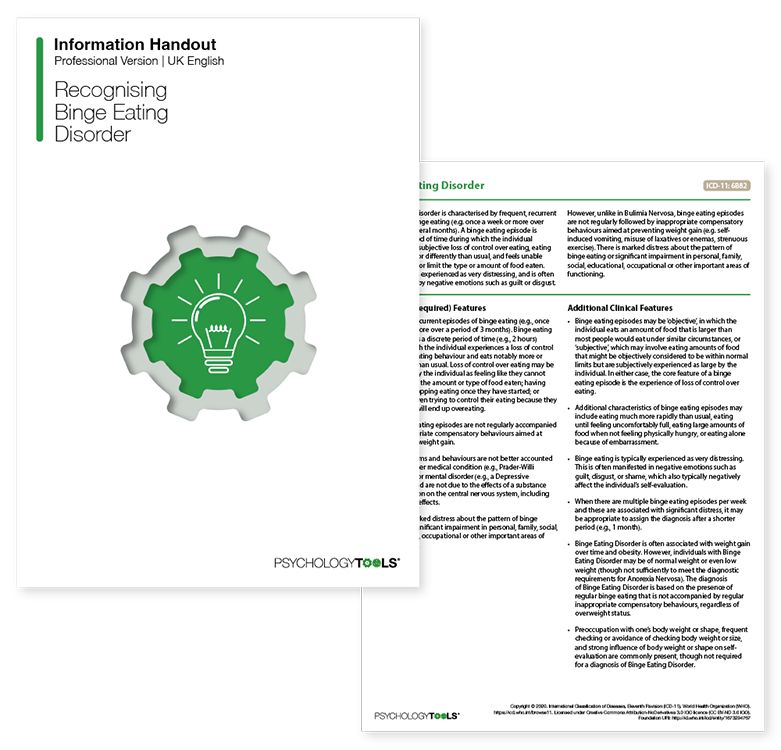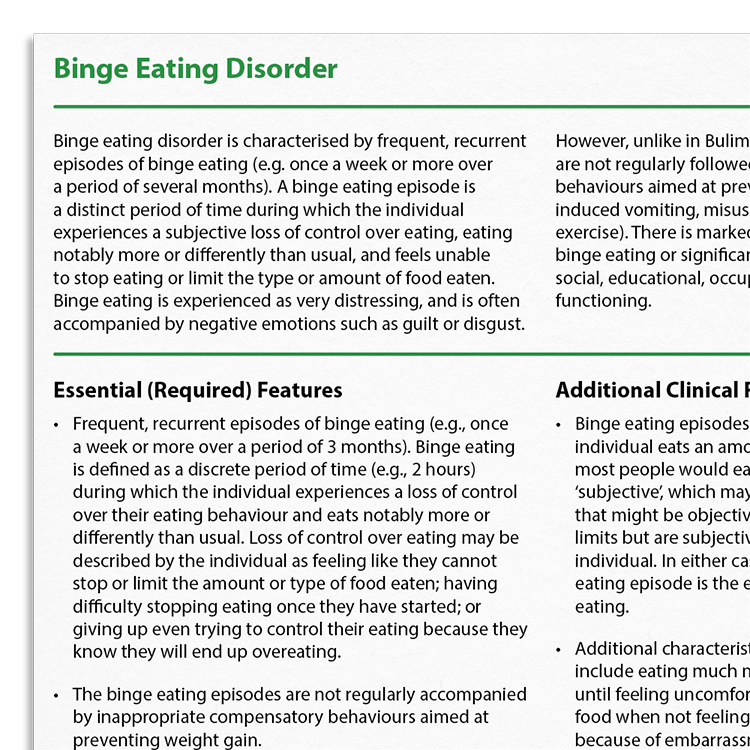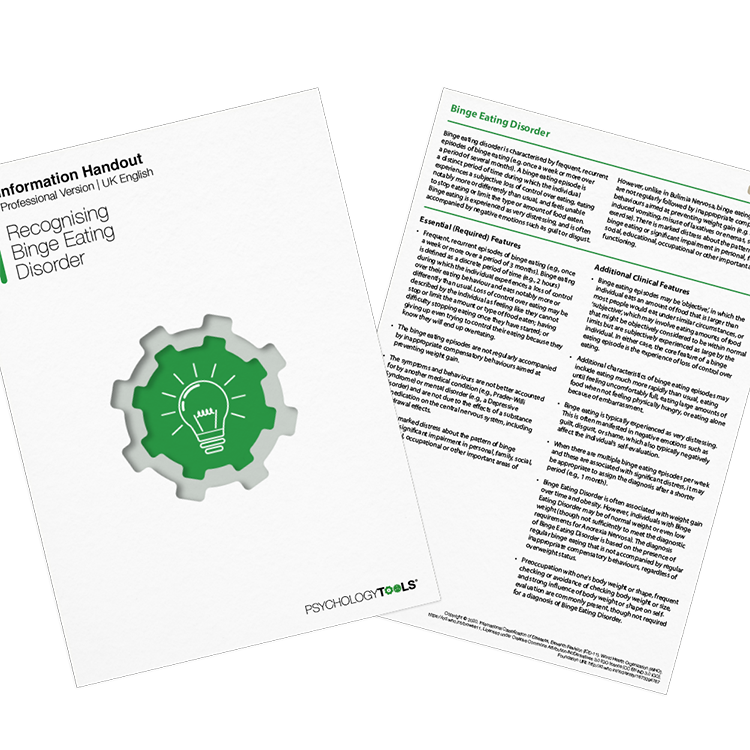Professional version
Offers theory, guidance, and prompts for mental health professionals. Downloads are in Fillable PDF format where appropriate.
Recognizing Binge Eating Disorder outlines the ICD-11 diagnostic features to support therapists in identifying binge eating disorder in their clients.

Offers theory, guidance, and prompts for mental health professionals. Downloads are in Fillable PDF format where appropriate.
To use this feature you must be signed in to an active account on the Advanced or Complete plans.

Binge eating disorder is a serious and often misunderstood eating disorder that involves recurrent episodes of binge eating without the use of the regular compensatory behaviours that are present in bulimia nervosa. This concise clinical summary is based on ICD-11 criteria and is designed to support mental health professionals in accurately identifying binge eating disorder. It outlines essential and additional features, distinguishing it from other eating disorders.
Recognizing Binge Eating Disorder presents the ICD-11 diagnostic criteria to help clinicians identify binge eating disorder in clients.
Binge eating disorder often presents without obvious physical signs and can be overlooked in clinical assessments. This resource helps clinicians:
Individuals experiencing recurrent loss of control over eating without compensatory behaviours.
Clients who binge eat frequently but do not meet all DSM/ICD criteria for other disorders.
Individuals who use food in response to guilt, shame, or distress.
Review the key features of binge eating disorder.
Identify symptoms of binge eating disorder in clients.
Discuss whether clients identify with symptoms of bing eating disorder.
Psychiatric diagnostic frameworks serve multiple purposes. Classification of mental disorders enables clinicians and researchers to speak a common language when describing patterns of experience and behavior, guide appropriate treatment interventions, and act as a coding system for insurance purposes. The success of these classification frameworks has varied across diagnoses but in the best cases has led to improved understanding and treatment of conditions, as well as helping many service users who find such classification valuable (Perkins et al, 2018).
Diagnostic frameworks are not without controversy. They have been criticized on grounds of reliability, validity, and distortions due to commercial interests (Zigler & Phillips, 1961; Frances & Widiger, 2012; Bell, 2017). Perhaps most importantly there are instances where they have had, and continue to have, extremely negative effects upon service users (Perkins et al, 2018). Diagnosis is not the only way of understanding people and their experiences. Many clinicians and their clients find that attending to personal stories and narratives is a helpful approach, and psychological formulation is one technique for bringing together information about what has happened to an individual and the sense that they have made of it (British Psychological Society, 2018).
Notwithstanding the above caveats, the ‘Recognizing...’ series from Psychology Tools is designed to aid clinicians in the recognition and understanding of common mental health problems.

Just enter your name and email address, and we'll send you Recognizing Binge Eating Disorder (English US) straight to your inbox. You'll also receive occasional product update emails wth evidence-based tools, clinical resources, and the latest psychological research.
Working...
This site uses strictly necessary cookies to function. We do not use cookies for analytics, marketing, or tracking purposes. By clicking “OK”, you agree to the use of these essential cookies. Read our Cookie Policy